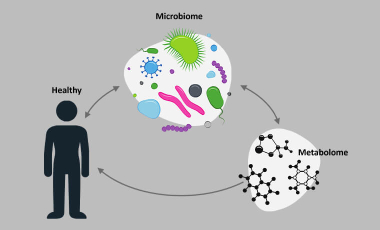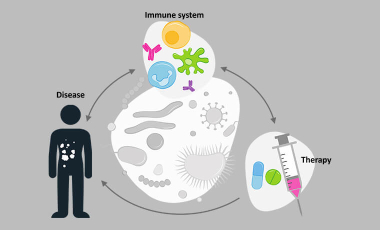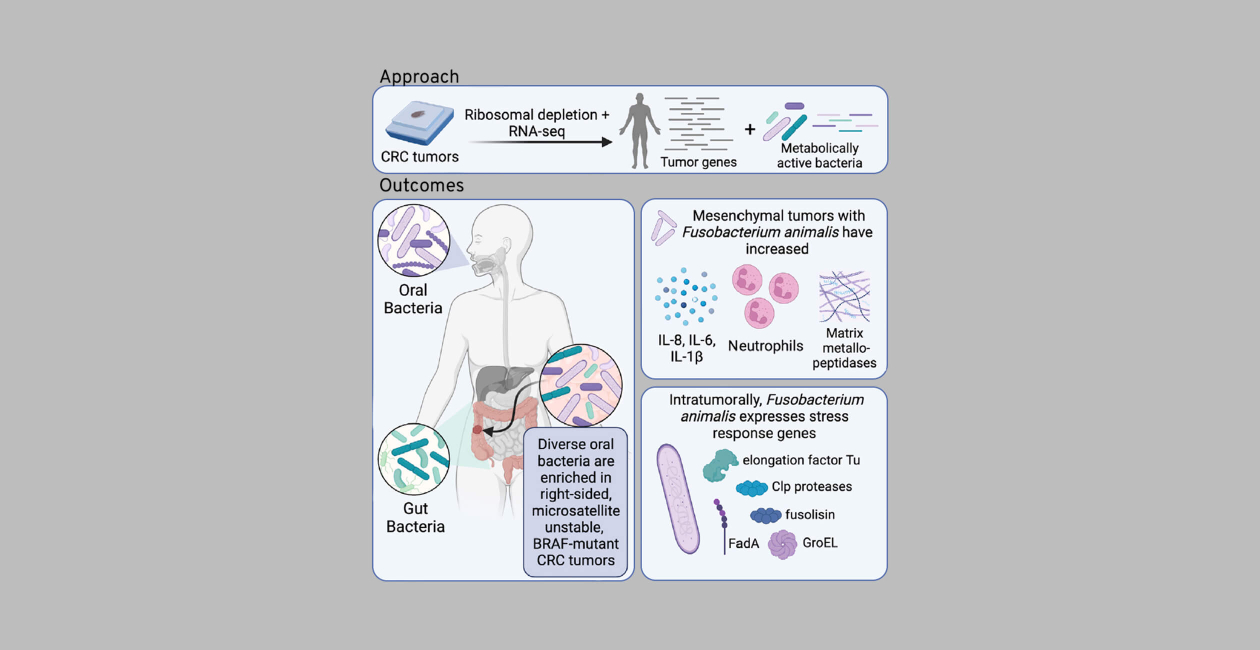The Byrd Lab studies how microbes influence health and disease — not just systemically through gut-derived metabolites, but locally within tissues themselves. Understanding these local effects is key to uncovering how bacteria shape disease progression, influence responses to therapy, and interact with the immune system.
To explore this, the lab has focused on colorectal cancer. Previous studies often relied on low-resolution methods to profile microbes in tumors, limiting insights into bacterial diversity and function. The Byrd Lab took a deeper, more comprehensive approach using samples from the AVANT phase III trial. A total of 807 tumor samples underwent advanced RNA sequencing that captured both tumor gene activity and intratumoral bacteria. Following rigorous quality control to remove potential contaminants, the team identified 74 distinct bacterial species.
While many were common gut residents, 17 species — including four Fusobacterium strains — originated from the oral cavity. These oral-derived microbes were particularly enriched in right-sided, microsatellite instability-high tumors and BRAF-mutant tumors. Further analysis showed that Fusobacterium animalis influenced tumor gene activity in ways that varied depending on tumor context, highlighting the nuanced interplay between microbes and host tissue.
Building on these findings, the Byrd Lab is expanding its work to additional tumor samples and biopsies from inflamed and non-inflamed regions of the gastrointestinal tract. By combining cutting-edge technologies with rigorous experimental design, the lab aims to map how microbes shape local tissue environments. This research advances understanding of cancer biology and holds promise in guiding development of more targeted therapies and personalized treatment strategies for patients.
Additional Research Projects

Steady-State Microbiome and Metabolome
The Byrd Lab studies how the gut microbiome and its metabolic products — known as the metabolome — shape human health.

Longitudinal Microbiome Dynamics in Patients With Cancer and Immune-Mediated Diseases
The Byrd Lab is exploring how the human microbiome — the diverse community of microbes living in the gut — changes over time in patients undergoing cancer treatment or with other immune system diseases.



